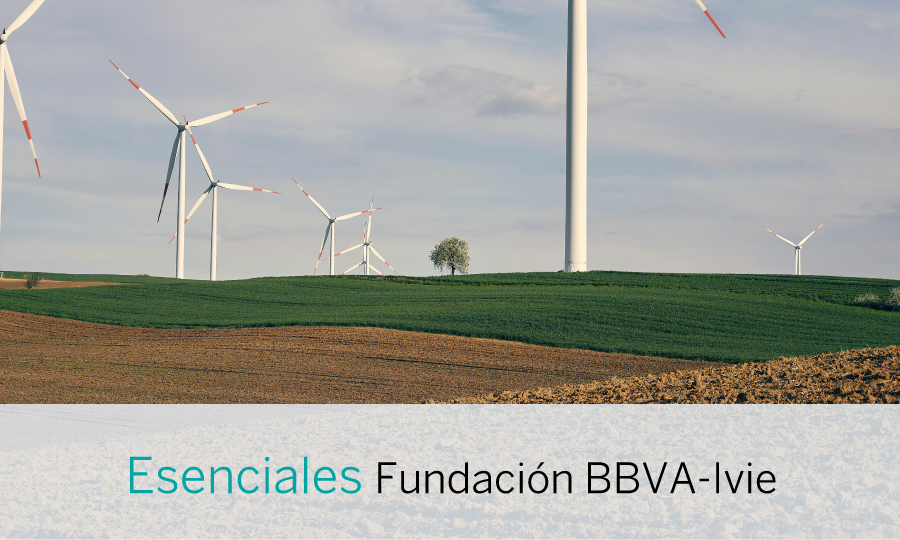Esta web utiliza cookies para que podamos ofrecerte la mejor experiencia de usuario posible. La información de las cookies se almacena en tu navegador y realiza funciones tales como reconocerte cuando vuelves a nuestra web o ayudar a nuestro equipo a comprender qué secciones de la web encuentras más interesantes y útiles.

Spain has reduced greenhouse gas emissions per euro of GDP by 41% since 2008, but progress has been slower in manufacturing and transport
España ha reducido la intensidad de las emisiones de gases de efecto invernadero, especialmente en la generación de electricidad, aunque ha progresado menos en las manufacturas y en transporte, según explica este Esenciales de la Fundación BBVA y el Ivie sobre avances en la lucha contra el cambio climático
Productivity is a key driver of economic growth and prosperity, but it also plays an essential role in addressing climate change. Efficient use of resources such as energy and materials helps reduce greenhouse gas (GHG) emissions. Spain has successfully decoupled gross domestic product (GDP) growth from the production of these gases. In other words, economic growth is becoming less dependent on activities that generate more GHG. In 2008, Spain emitted 0.33 kg of CO2 emissions per euro of GDP. By 2023, this figure had dropped to only 0.19 kg per euro of GDP—a reduction of 41%. Spain has reduced the intensity of GHG emissions, especially in electricity generation. However, it has made less progress in manufacturing, a sector in which it generates nearly twice as much as Germany. The transport sector also shows higher emissions compared to Germany, Italy, and France. Ensuring the sustainability of future economic growth in Spain depends on faster growth in the productive efficiency of GHG emissions across all sectors.


